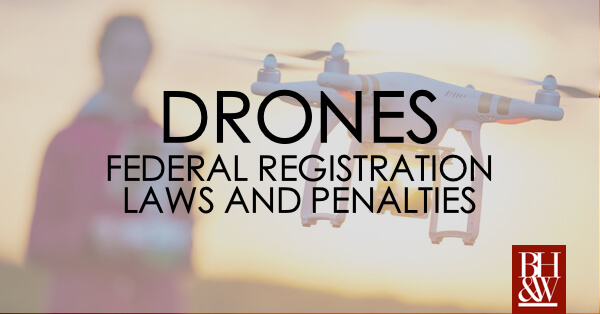
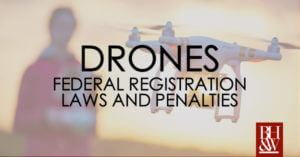 Drones or Quadcopters were a popular Christmas gift this year. While many new drone owners are probably preoccupied with learning to fly without getting the propellers stuck in trees or crashing them over their neighbor’s fence, they need to take a moment to learn about the federal registration rules for unmanned aircraft.
Drones or Quadcopters were a popular Christmas gift this year. While many new drone owners are probably preoccupied with learning to fly without getting the propellers stuck in trees or crashing them over their neighbor’s fence, they need to take a moment to learn about the federal registration rules for unmanned aircraft.
*Federal drone registration had been struck down by an appeals court in May of 2017, but the National Defense Authorization Act that was passed in December 2017 reinstated drone registration.
Do I Have to Register My Drone?
Maybe. Any unmanned aircraft system (“drone”) that weighs more than .55 pounds must be registered with the FAA. Depending on the size of the drone, it can be registered under:
- Part 107, Small UAS Rule,
- Section 336, the Special Rule for Model Aircraft, or
- 14 CFR Part 47, the Traditional Aircraft Registration
Registration Under The Special Rule for Model Aircraft
Most people register their drone under this provision. The Special Rule for Model Aircraft allows for registration of a drone between 0.55 lbs and 55 lbs for recreational use only. Under this registration:
- A person is allowed to fly their drone within their line of sight,
- A person is required to follow the community-based and nationwide guidelines,
- A person is not allowed to fly their drone over an airport or to interfere with emergency response units, and
- A person must notify an airport when they are flying within five miles of an airport.
In order to register under the Special Rule for Model Aircraft, you must:
- Register as a “modeler” with the FAA,
- Be at least 13 years’ old,
- Be a legal United States citizen or legal permanent resident, and
- Label your drone with the registration number in case it is lost or stolen.
This registration, which can be completed online costs $5 and lasts for 3 years.
How to Register Drones (0.55–55 lbs) Under FAA Small UAS Rule
The Small UAS Rule allows for registration of a drone between 0.55lbs and 55lbs for recreational and commercial use. Registration is REQUIRED by the FAA. Under the Small UAs Rule a person may:
- Fly their drone at or below 400 feet (Class “G” airspace)
- Fly during daylight or civil twilight
- Fly at or below 100 miles per hour.
With a drone registered under Part 107, the pilot:
- Must yield to manned aircraft
- Cannot fly directly over people,
- Cannot fly from a moving vehicle unless you are in a sparsely populated area.
In order to obtain your registration under the Small UAs Rule, you must:
- Be at least 16 years old,
- Have a valid credit card, email address, and physical/mailing address,
- Pass an aeronautical knowledge test at an FAA-approved testing center,
- Undergo a Transportation Safety Administration security screening, and
- Denote the make and model of your aircraft when applying for registration.
The Small UAS Rule registration, which can be completed online costs $5 and lasts for 3 years.
Traditional Aircraft Registration for Drones Greater Than 55 Lbs
Traditional Aircraft Registration must be completed for any unmanned aircraft weighing over 55 pounds. The paperwork for drones greater than 55 pounds can be found on the FAA website and must be turned in via regular mail. Drones over 55 lbs will require an N-number that you have to submit to the FAA. The FAA website lays out the necessary information for an application.
This registration costs $5 and lasts for 3 years.
What is the Penalty for Flying a Drone Without Registering it?
Failure to register an unmanned aircraft can result in regulatory penalties up to $27,500 and criminal penalties up to $250,000 and/or imprisonment for up to 3 years. Penalties are determined on a case by case basis and will vary based on the judge.
The FAA provides on its website:
“There is no one-size-fits-all enforcement action for violations. All aspects of a violation will be considered, along with mitigating and aggravating circumstances surrounding the violation. In general, the FAA will attempt to educate operators who fail to comply with registration requirements. However, fines will remain an option when egregious circumstances are present.”
Do you have to register your drone if you only fly over your own property?
Even if flying over your own property, the FAA still requires registration of your drone. The penalties for failure to register an unmanned aircraft will apply even if the drone does not leave your property.
What Other Drone Rules Should I Be Aware of?
Every registration allows for different flight regulations, so pay close attention to what you register for and what that particular registration allows you to do. The FAA has developed an app called “B4UFLY”which gives you important information about your location and the flight restrictions in that area. This app is recommended by the FAA to help avoid violations of the registration limitations. For any additional questions/concerns, visit the FAA website.

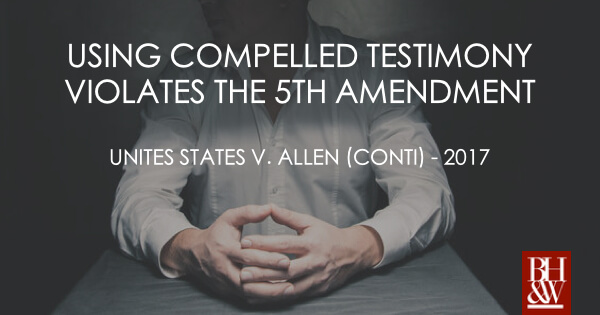
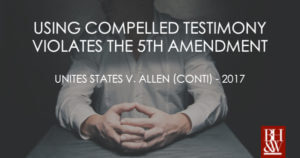 The Second Circuit Court of Appeals recently handed down an opinion concerning the use of compelled testimony in an American trial. In Allen and Conti, the Court was asked to determine whether previous compelled testimony by a foreign government, which was later used against the defendant in a criminal prosecution in the United States, violated the Fifth Amendment.
The Second Circuit Court of Appeals recently handed down an opinion concerning the use of compelled testimony in an American trial. In Allen and Conti, the Court was asked to determine whether previous compelled testimony by a foreign government, which was later used against the defendant in a criminal prosecution in the United States, violated the Fifth Amendment.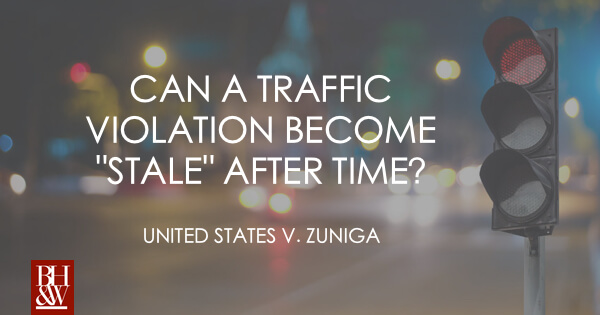
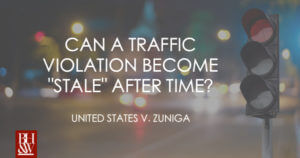 United States v. Zuniga (US Court of Appeals, 5th Cir. 2017)
United States v. Zuniga (US Court of Appeals, 5th Cir. 2017)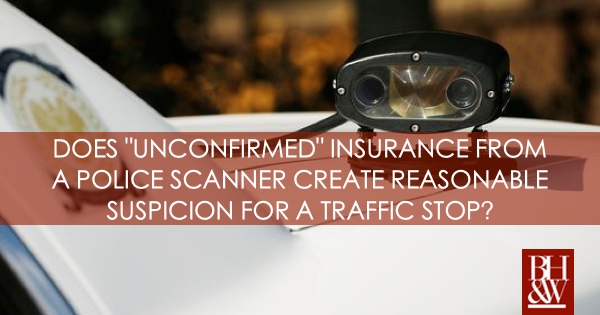
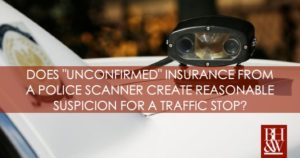 While conducting surveillance on an illegal immigration investigation, Homeland Security agents saw a vehicle leave a residence suspected of harboring undocumented immigrants. The agents notified local police officers to be-on-the-lookout for the vehicle. While on patrol, an officer began to follow the defendant’s vehicle because it matched the description of the vehicle from Homeland Security. While following the vehicle, the local officer entered its license plate number into a computer database designed to return vehicle information such as insurance status. The computer indicated the insurance status was “unconfirmed.” Based on his experience using this system, the officer reasoned that the vehicle was most likely uninsured, which is, of course, a violation of Texas law. The officer then conducted a traffic stop of the vehicle and learned that the defendant was in the United States illegally. The officer issued the defendant citations for violating the insurance requirement and driving without a license while he waited for the Homeland Security agents to arrive.
While conducting surveillance on an illegal immigration investigation, Homeland Security agents saw a vehicle leave a residence suspected of harboring undocumented immigrants. The agents notified local police officers to be-on-the-lookout for the vehicle. While on patrol, an officer began to follow the defendant’s vehicle because it matched the description of the vehicle from Homeland Security. While following the vehicle, the local officer entered its license plate number into a computer database designed to return vehicle information such as insurance status. The computer indicated the insurance status was “unconfirmed.” Based on his experience using this system, the officer reasoned that the vehicle was most likely uninsured, which is, of course, a violation of Texas law. The officer then conducted a traffic stop of the vehicle and learned that the defendant was in the United States illegally. The officer issued the defendant citations for violating the insurance requirement and driving without a license while he waited for the Homeland Security agents to arrive.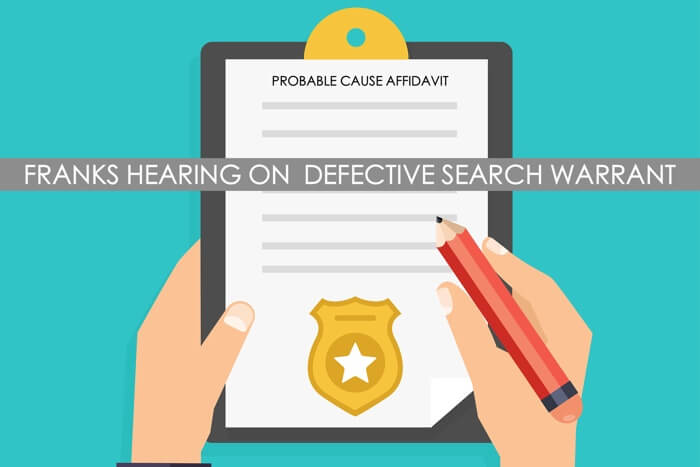
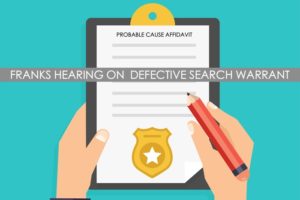 Evidence obtained by a valid search warrant can be used at trial. But what if the search warrant was based on information provided by a third party who later recants the information he provided? Further, what if law enforcement mischaracterized the evidence when presenting it to the magistrate in the application for the warrant? What legal remedy, if any, exists to support defendants who find themselves in this situation? The Fifth Circuit heard United States v. Minor in August, this article summarizes the Court’s surprising holding.
Evidence obtained by a valid search warrant can be used at trial. But what if the search warrant was based on information provided by a third party who later recants the information he provided? Further, what if law enforcement mischaracterized the evidence when presenting it to the magistrate in the application for the warrant? What legal remedy, if any, exists to support defendants who find themselves in this situation? The Fifth Circuit heard United States v. Minor in August, this article summarizes the Court’s surprising holding.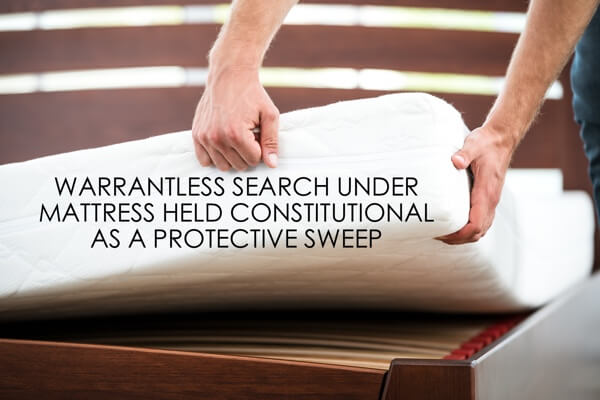
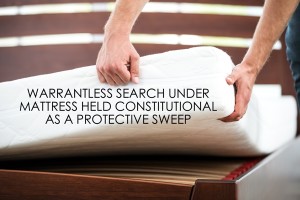 FACTS: On February 5, 2014, the Wharton County Deputy Sheriff’s Department served a felony arrest warrant on Yonari Garcia at his father’s trailer home. Yonari’s father told law enforcement that Yonari was not home, however, consented to a search of the trailer. Upon entry, Garcia-Lopez, Yonari’s brother, made a beeline for a bedroom, closing and locking the door. Law enforcement followed Garcia-Lopez and demanded that the door be unlocked. Garcia-Lopez opened the door and the police entered, continuing the search for Yonari. Garcia-Lopez asked if he could sit on his bed and eat his dinner while police searched the room. The police obliged the odd request. A minute later, law enforcement discovered two sets of bullet-proof vests in plain sight, prompting a background check. Garcia-Lopez was a convicted felon and having the body armor was a violation for being a felon in possession of body armor, U.S.C. § 922(g)(1). The police arrested Garcia-Lopez after being in the home a total of three minutes. After the arrest, police continued searching the Garcia-Lopez’s room. Concerned Yonari might be sheltered in a hollowed-out mattress, the police lifted the bed up, discovering ammunition and three handguns sandwiched between the mattress and box springs. After a total of seven minutes inside the trailer, the police left with Garcia-Lopez under arrest.
FACTS: On February 5, 2014, the Wharton County Deputy Sheriff’s Department served a felony arrest warrant on Yonari Garcia at his father’s trailer home. Yonari’s father told law enforcement that Yonari was not home, however, consented to a search of the trailer. Upon entry, Garcia-Lopez, Yonari’s brother, made a beeline for a bedroom, closing and locking the door. Law enforcement followed Garcia-Lopez and demanded that the door be unlocked. Garcia-Lopez opened the door and the police entered, continuing the search for Yonari. Garcia-Lopez asked if he could sit on his bed and eat his dinner while police searched the room. The police obliged the odd request. A minute later, law enforcement discovered two sets of bullet-proof vests in plain sight, prompting a background check. Garcia-Lopez was a convicted felon and having the body armor was a violation for being a felon in possession of body armor, U.S.C. § 922(g)(1). The police arrested Garcia-Lopez after being in the home a total of three minutes. After the arrest, police continued searching the Garcia-Lopez’s room. Concerned Yonari might be sheltered in a hollowed-out mattress, the police lifted the bed up, discovering ammunition and three handguns sandwiched between the mattress and box springs. After a total of seven minutes inside the trailer, the police left with Garcia-Lopez under arrest.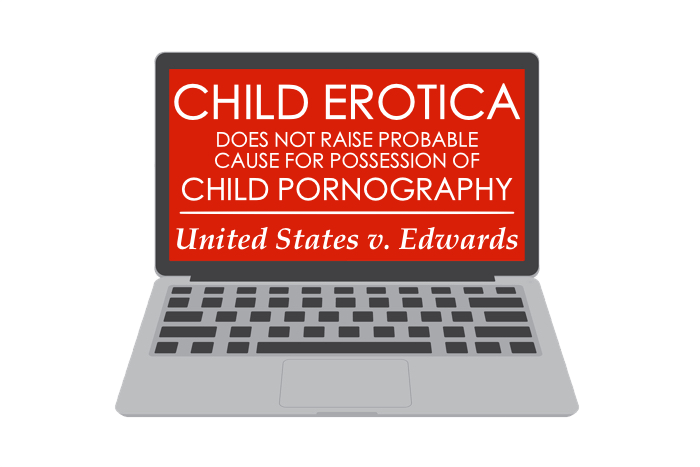
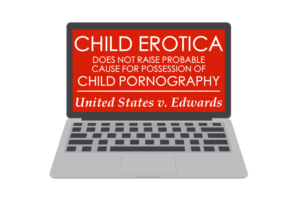 Paul Edwards was charged with
Paul Edwards was charged with 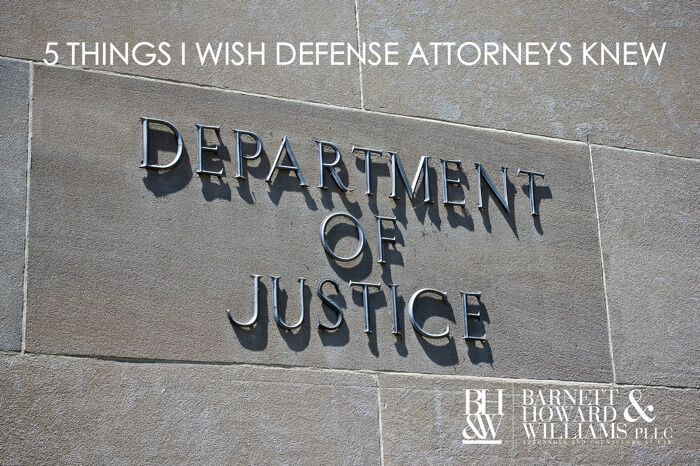
 Glen. R. Hines (
Glen. R. Hines (
 A district court convicted Renee Pratt, a prominent Louisiana politician, of conspiracy to violate the federal Racketeer Influenced and Corrupt Organizations Act (“RICO”). 18 U.S.C. § 1962(d). Pratt’s conviction resulted from a thorough investigation of her long-time friend, Mose Jefferson, a well-known Louisiana community organizer and politician, as well as his family. United States v. Pratt, 728 F.3d 463 (5th Cir. 2013), cert. denied, 134 S. Ct. 1328 (2014). The Jefferson family and Pratt were accused of obtaining community-service grants, and using the money for personal gain. Id. Pratt timely appealed, citing new evidence that several prosecutors from the U.S. Attorney’s Office (“USAO”), made negative and persuasive online comments in public forums, including a local newspaper’s website, regarding her case around the time of trial. Pratt claims that the jury rendered a guilty verdict because of the disparaging and prejudicial comments.
A district court convicted Renee Pratt, a prominent Louisiana politician, of conspiracy to violate the federal Racketeer Influenced and Corrupt Organizations Act (“RICO”). 18 U.S.C. § 1962(d). Pratt’s conviction resulted from a thorough investigation of her long-time friend, Mose Jefferson, a well-known Louisiana community organizer and politician, as well as his family. United States v. Pratt, 728 F.3d 463 (5th Cir. 2013), cert. denied, 134 S. Ct. 1328 (2014). The Jefferson family and Pratt were accused of obtaining community-service grants, and using the money for personal gain. Id. Pratt timely appealed, citing new evidence that several prosecutors from the U.S. Attorney’s Office (“USAO”), made negative and persuasive online comments in public forums, including a local newspaper’s website, regarding her case around the time of trial. Pratt claims that the jury rendered a guilty verdict because of the disparaging and prejudicial comments.





